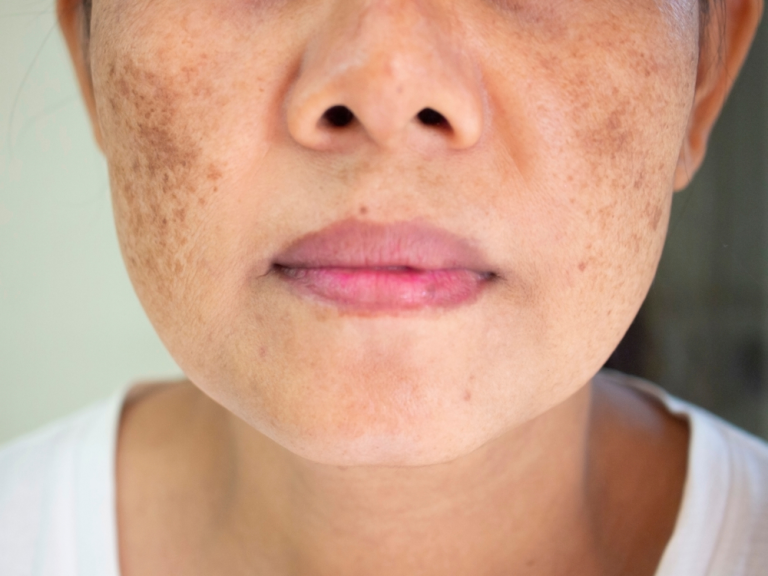What Skincare Specialists Want You to Know About Psoriasis

Dealing with psoriasis can be more than just skin deep. It’s not just about the visible patches, flakes, or red patches that often cause discomfort—it’s about the emotional toll, the uncertainty, and the constant search for effective treatment. If you or someone you know has been living with psoriasis, you know just how overwhelming it can be. Fortunately, with the right approach, managing psoriasis is possible.
As a skincare specialist, we understand the complexities of psoriasis and the need for personalised, effective treatments. Whether you’re dealing with mild symptoms or more severe flare-ups, understanding what psoriasis is and how to treat it can be a game-changer. Read on to discover what skincare specialists recommend for managing psoriasis and improving your skin’s health.
What Is Psoriasis?
Psoriasis is a chronic autoimmune condition that causes skin cells to multiply too quickly, resulting in thick, scaly patches. These patches can vary in size and may appear anywhere on the body, though they’re most commonly found on the scalp, elbows, knees, and lower back. While psoriasis is not contagious, its effects can significantly impact a person’s confidence and overall well-being.
The exact cause of psoriasis is not fully understood, but it’s believed to be triggered by a combination of genetic and environmental factors. For many, stress, certain medications, infections, or even the weather can trigger or worsen flare-ups.
Common Types of Psoriasis
Psoriasis comes in several different forms, and the symptoms can vary from person to person. The most common types include:
- Plaque Psoriasis: The most widespread form, causing raised, red patches covered with silvery-white scales.
- Guttate Psoriasis: Characterised by small, drop-shaped lesions, often triggered by a strep infection.
- Inverse Psoriasis: Appears as bright red, shiny lesions, typically in skin folds, such as under the arms or beneath the breasts.
- Pustular Psoriasis: Causes white pustules (blisters of noninfectious pus) surrounded by red skin.
- Erythrodermic Psoriasis: A rare and severe form that causes widespread redness and shedding of the skin in large sheets.
Each type of psoriasis requires a slightly different treatment approach, which is why it’s important to consult with a skincare professional who understands the nuances of the condition.
Psoriasis Treatment: What Skincare Specialists Recommend?
While psoriasis is not curable, there are effective ways to manage the symptoms and reduce flare-ups. Skincare specialists typically recommend a combination of topical treatments, lifestyle adjustments, and in some cases, medical therapies.
1. Topical Treatments
Topical treatments are often the first line of defence for managing psoriasis. These products can help reduce inflammation, control scaling, and prevent flare-ups. Common topical treatments include:
- Corticosteroids: These are anti-inflammatory creams or ointments that can help reduce redness and swelling.
- Vitamin D Analogues: These help slow the growth of skin cells, which is beneficial for plaque psoriasis.
- Coal Tar: Used to reduce itching and scaling, coal tar can be found in shampoos, creams, and lotions.
- Topical Retinoids: These vitamin A derivatives can help normalise skin cell production.
When using topical treatments, it’s crucial to follow the instructions carefully and apply them only to the affected areas to avoid skin thinning or irritation.
2. Phototherapy
Phototherapy, also known as light therapy, involves exposing the skin to ultraviolet (UV) light under controlled conditions. This treatment can be especially effective for individuals with moderate to severe psoriasis. UVB light can slow down the rapid skin cell turnover that causes psoriasis plaques.
3. Systemic Treatments
For more severe cases of psoriasis that don’t respond to topical treatments, systemic treatments may be required. These treatments work throughout the body to address the underlying immune system dysfunction. Systemic treatments include:
- Oral medications: These medications help reduce inflammation or slow down skin cell production. Examples include methotrexate, acitretin, and cyclosporine.
- Biologic drugs: These are injected or infused medications that target specific parts of the immune system. Biologics can be a game-changer for those with moderate to severe psoriasis, as they help prevent the immune system from attacking healthy skin cells.
Lifestyle Tips to Manage Psoriasis
In addition to medical treatments, adopting a healthy lifestyle can help reduce the frequency and severity of psoriasis flare-ups. Here are some lifestyle tips to consider:
- Manage stress: Stress is one of the most common triggers for psoriasis flare-ups. Incorporating relaxation techniques such as yoga, meditation, or deep breathing exercises into your routine can help manage stress levels.
- Maintain a healthy diet: While no specific diet has been proven to cure psoriasis, certain foods can help reduce inflammation. A diet rich in antioxidants, omega-3 fatty acids, and fibre may promote healthier skin.
- Stay moisturised: Psoriasis can cause dry, cracked skin. Regularly applying a good moisturiser helps maintain skin hydration and prevents further irritation. Choose creams or lotions that are fragrance-free and designed for sensitive skin.
- Avoid triggers: Identifying and avoiding psoriasis triggers is crucial. This can include harsh soaps, smoking, excessive alcohol consumption, or extreme weather conditions.
Take Control of Your Skin Health Today
Psoriasis doesn’t have to control your life. By working with skincare specialists who understand the condition, you can manage your symptoms and live comfortably in your own skin. With the right treatment plan and lifestyle changes, you can find relief from the discomfort of psoriasis and prevent flare-ups from interfering with your daily life.
Psoriasis may be a lifelong condition, but with the right tools and support, it’s possible to manage it effectively and lead a fulfilling, active life. With the guidance of Neuglow’s specialists, you can find relief and regain your confidence.
Ready to take the next step in managing your psoriasis? Contact Neuglow today for specialist advice and a personalised treatment plan that puts you back in control of your skin health.





